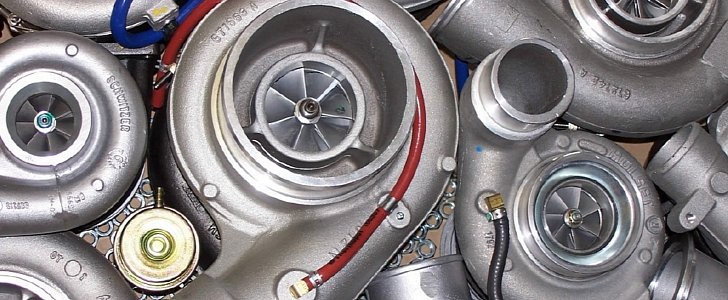A Complete Guide to Choosing the Right Engine for Your Job
Choosing the proper engine for your task is a critical choice that can significantly impact its general success. Each of these aspects plays an essential function in making certain that your chosen engine not only fulfills prompt purposes yet likewise straightens with long-lasting ambitions.
Define Your Project Needs
Specifying your task needs is an essential action in choosing the proper engine for successful application. A thorough understanding of your project's objectives will certainly assist you in identifying the capabilities and attributes required from an engine. Begin by detailing the scope of your job, including the desired functionality, target market, and the particular end results you aim to attain.
Next, take into consideration the technical requirements that straighten with your project objectives. This includes reviewing the compatibility of the engine with existing systems, as well as the shows languages and frameworks that will certainly be utilized. Furthermore, assess the degree of scalability required to suit future growth or adjustments sought after.
Budget restrictions additionally play a vital function in defining your task requires. Develop a clear monetary framework to lead your decision-making process, making sure that the engine selected fits within your budget plan while giving the necessary performance.
Evaluate Efficiency Requirements

Next, think about the scalability of the engine. Analyze whether it can handle enhanced work as your job expands. Engines that support straight scaling are often more suitable for larger applications. Additionally, assess the engine's efficiency under various conditions, such as peak use situations, to guarantee it satisfies your dependability criteria.
Take Into Consideration Convenience of Usage
While technological specs are necessary, the convenience of usage of an engine can substantially affect the advancement process and overall task success. An instinctive interface, clear documents, and structured workflows can significantly decrease the learning contour for designers, allowing them to focus on creativity and analytic instead than facing complicated tools.
When reviewing an engine's convenience of usage, consider the onboarding experience. A well-structured intro, total with tutorials and sample tasks, can assist in a smoother transition for brand-new individuals. Additionally, the quality and comprehensiveness of the engine's documentation play a critical duty; detailed guides and API recommendations can empower developers to repair and execute attributes effectively.
Another facet to consider is the engine's personalization abilities. An engine that enables simple modifications can be a lot more easy to use, as developers can tailor it to fit their specific needs without considerable trouble. Lastly, evaluate the workflow combination with devices and platforms you already use. A natural ecological community can boost productivity and decrease friction during the advancement procedure. Inevitably, picking an engine that prioritizes simplicity of usage can cause an extra effective and satisfying growth experience.
Assess Area and Assistance
The toughness of an engine's area and assistance network can greatly influence a developer's experience and success. A vibrant area frequently suggests a wealth of common expertise, sources, and repairing help that can improve your project's advancement process. When evaluating an engine, consider the dimension and task degree of its neighborhood. Larger areas generally offer extra online forums, tutorials, and third-party plugins, allowing designers to find remedies a lot more effectively.
Furthermore, assess the accessibility of main support networks. Trustworthy paperwork, receptive customer support, and normal updates are vital for addressing technical problems and maintaining your job on course. Engines For Africa. Active communities likewise cultivate Read Full Report partnership, giving chances for networking and responses, which can be invaluable, especially for small teams or independent developers
In addition, examine the existence of community-run occasions, such as hackathons or meetups. These gatherings can enhance your understanding of the engine while connecting you with possible partners and seasoned users. In summary, a durable neighborhood and support group not just streamline advancement yet also create an atmosphere for learning and development, eventually boosting the likelihood of your job's success.
Compare Expense and Licensing Choices
Spending plan considerations play a vital duty in picking the right engine for your project, as the cost and licensing options can considerably affect both temporary expenditures and lasting viability. Engines For Africa. Various engines use differing pricing structures, which can include single acquisition fees, subscription models, or revenue-sharing agreements based on your project's incomes

Licensing options also differ significantly. Some engines are open-source, using versatility and community-driven support, while others may require proprietary licenses that limit use and distribution. Comprehending the ramifications of each licensing model is vital, as it influences possession civil liberties, future scalability, and prospective legal obligations.
Verdict
In final thought, picking the appropriate engine for a project demands a complete examination of defined job requirements, performance needs, simplicity of use, community assistance, and expense considerations. By methodically resolving these important elements, decision-makers can make certain positioning with both present and future project needs. A well-informed selection eventually improves the likelihood of task success, enabling reliable resource allocation and taking full advantage of potential results within the defined monetary constraints.
Choosing the ideal engine for your project is a learn this here now critical choice that can significantly affect its total success.Specifying your project requires is a crucial step in selecting the proper engine for effective implementation. A detailed understanding of your task's purposes will assist you in recognizing the functions and capabilities called for from an engine.Once you have a clear understanding of your job requires, the following step is to review the performance requirements of the engine.In final thought, picking the suitable engine for a job demands a comprehensive analysis of defined job requirements, efficiency needs, ease of use, community support, and cost factors to consider.